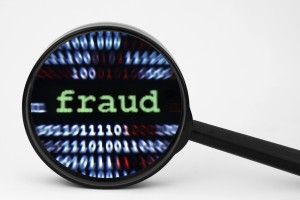 After huge businesses including Citigroup, Sony, Google, and even the U.S. Senate were hacked, cybersecurity experts released helpful tips on how individuals can protect themselves online from theft, identity, and fraud.
After huge businesses including Citigroup, Sony, Google, and even the U.S. Senate were hacked, cybersecurity experts released helpful tips on how individuals can protect themselves online from theft, identity, and fraud.
“The average person should know that they are not as much as a target individually,” Mark Rasch, director of cybersecurity and privacy consulting for CSC and a former member of the U.S. Department of Justice division that deals with cybercrime. “While there are these broad sweeps of people trying to break into any place they can, by and large hacking activity is targeted at companies that hold information about you, not your personal machine.” Below are the top 5 tips for protecting your privacy online.
- Use a powerful password. Using a strong password for your important sites is one of the easiest and most effective ways to prevent getting hacked. The best passwords are a combination of uppercase letters, lowercase letters, numbers, and special characters. It is also recommended to use 4 random words, which may be easier to remember if you use mnemonic device. It is also important that you do not use information in your password that can easily be tracked to you, like your birthday or mother’s maiden name, as a cyberthief could easily track down this information.
- Us unique passwords. Having a single strong password is good, but having several strong passwords for different sites is even more effective. “Just like you have a ring of keys, you have a key to your house and a key to your car, you need a different key for each site,” said E. J. Hilbertpresident of Online Intelligence and a former FBI agent who investigated cases of cybercrime . “If I get your Facebook account, because your email account is your logon, then I probably also have your email account. And then if I have your email account, I can probably get your bank account and things like that.”
- Always use and update well known and established anti-viral and anti-malware software. There are various free options online, though Norton and McAfee are among the most effective and most credible.
- Google yourself and be aware of how your information could be used. Anything that you can find with a quick google search, and cyberthief could find and possibly use to hack into your accounts. For instance, a thief could easily find the name of your friends and family on Facebook. A common security question for forgotten passwords is regarding your mother’s maiden name, so a thief could hack into that account with the information found on Facebook. On that note, consider using false answers to security questions, and recording that false answer, as security questions are largely untrustworthy.
- In general, internet users are instructed to use common sense and good judgement. “There are not particularly dangerous places on the Internet, but if you liken the Internet to the real world, don’t got down that dark alley,” said Hilbert. “Every place on the Internet is not legitimate. If you’re walking down the street and you see a sign directing you into a dark alley to get to a store, you would probably think twice about it. You need to do the same thing on the Internet.”




